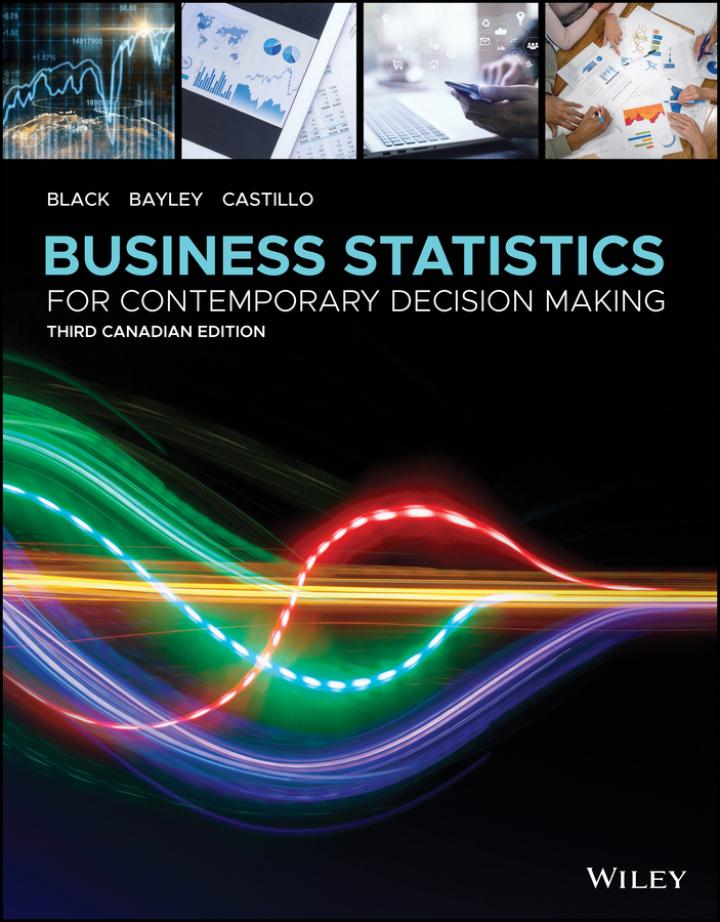The Fletcher-Terry Company is a worldwide leader in the development of glass-cutting tools and accessories for professional
Question:
The Fletcher-Terry Company is a worldwide leader in the development of glass-cutting tools and accessories for professional glaziers, glass manufacturers, glass artisans, and professional framers. The company can trace its roots back to 1868. For many decades, Fletcher-Terry had much success making its traditional product lines of hand-held glass cutters and cutting wheels for the glass, glazing, and hardware markets. However, by the 1980s, Fletcher-Terry was facing a crisis. Its two largest customers, distributors of cutting devices, decided to introduce their own private-label cutters made overseas. By the end of 1982, Fletcher-Terry’s sales of hand-held glass cutters were down 45%. Fletcher-Terry responded by investing heavily in technology with the hope that automation would cut costs; however, the technology never worked. The company then decided to expand its line of offerings by creating private lines through imports, but the U.S. dollar weakened and any price advantage was lost. Eventually, Fletcher-Terry had to write off this line with a substantial loss. Company managers realized that if they did not change the way they did business, the company would not survive. They began a significant strategic planning process in which they set objectives and redefined the mission of the company. Among the new objectives were to increase market share where the company was already strong, penetrate new markets with new products, provide technological expertise for product development, promote greater employee involvement and growth, and achieve a sales growth rate twice that of the gross domestic product. To accomplish these objectives, the company invested in plant and process improvements that reduced costs and improved quality. Markets were researched for both old and new products, and marketing efforts were launched to re-establish the company’s products as being “the first choice of professionals.” A participatory management system was implemented that encouraged risk taking and creativity among employees. Following these initiatives, sales growth totalled 82.5% from 1987 to 1993. Fletcher-Terry expanded its offerings with bevel mat cutters, new fastener tools, and a variety of hand tools essential to professional picture framers, and graduated from being a manufacturer of relatively simple hand tools to being a manufacturer of mechanically complex equipment and tools. Because of its continuous pursuit of quality, the company earned the Ford Q-101 Quality Supplier Award. In 2001, Fletcher-Terry introduced its Framer-Solutions.com online business-to-business custom mat-cutting service especially designed for professional picture framers. In 2012, Fletcher-Terry purchased two picture-framing businesses from Illinois Tool Works, including Alfamacchine, which gives the company manufacturing facilities in Italy. Fletcher-Terry holds over 90 patents, including the “original” glass-cutting wheel, the first vertical glass-cutting machine, and the “wide-track” all-carbide cutting wheel. The mission of Fletcher-Terry is to develop innovative tools and equipment for the markets it serves worldwide and make customer satisfaction its number one priority. Today, the Fletcher-Terry Company is known as the Fletcher Business Group and is a global brand and leading manufacturer of tabletop and wall-mounted/free-standing substrate cutters, points and drivers for picture framing, hand-held glass cutters and pliers, carbide scoring wheels, and pillar posts and inserts for the automated glass-processing industry.
1. Fletcher-Terry managers have been involved in many decisions over the years. Of particular importance were the decisions made in the 1980s when the company was struggling to survive. Several states of nature took place in the late 1970s and 1980s over which managers had little or no control. Suppose the Fletcher-Terry management team wants to reflect on its decisions and the events that surrounded them, and asks you to make a brief report summarizing the situation. Delineate at least five decisions that Fletcher- Terry probably had to make during that troublesome time. Using your knowledge of the economic situation both in the U.S. and in the rest of the world in addition to information given in the case, present at least four states of nature during that time that had significant influence on the outcomes of the managers’ decisions.
2. At one point, Fletcher-Terry decided to import its own private line of cutters. Suppose that before taking such action, the managers had the following information available. Construct a decision table and a decision tree by using this information. Explain any conclusions reached. Suppose the decision for managers was to import or not import. If they imported, they had to worry about the purchasing value of the dollar overseas. If the value of the dollar went up, the company could profit by $350,000. If the dollar maintained its present position, the company would still profit by $275,000. However, if the value of the dollar decreased, the company would be worse off with an additional loss of $555,000. One business economic source reported that there was a 25% chance that the dollar would increase in value overseas, a 35% chance that it would remain constant, and a 40% chance that it would lose value overseas. If the company decided not to import its own private label, it would have a $22,700 loss no matter what the value of the dollar was overseas. Explain the possible outcomes of this analysis to the management team in terms of EMV, risk aversion, and risk taking. Bring common sense into the process and give your recommendations on what the company should do given the analysis. Keep in mind the company’s situation and the fact that it had not yet tried any solution. Explain to company officials the expected value of perfect information for this decision.
Step by Step Answer:

Business Statistics For Contemporary Decision Making
ISBN: 9781119577621
3rd Canadian Edition
Authors: Ken Black, Ignacio Castillo




